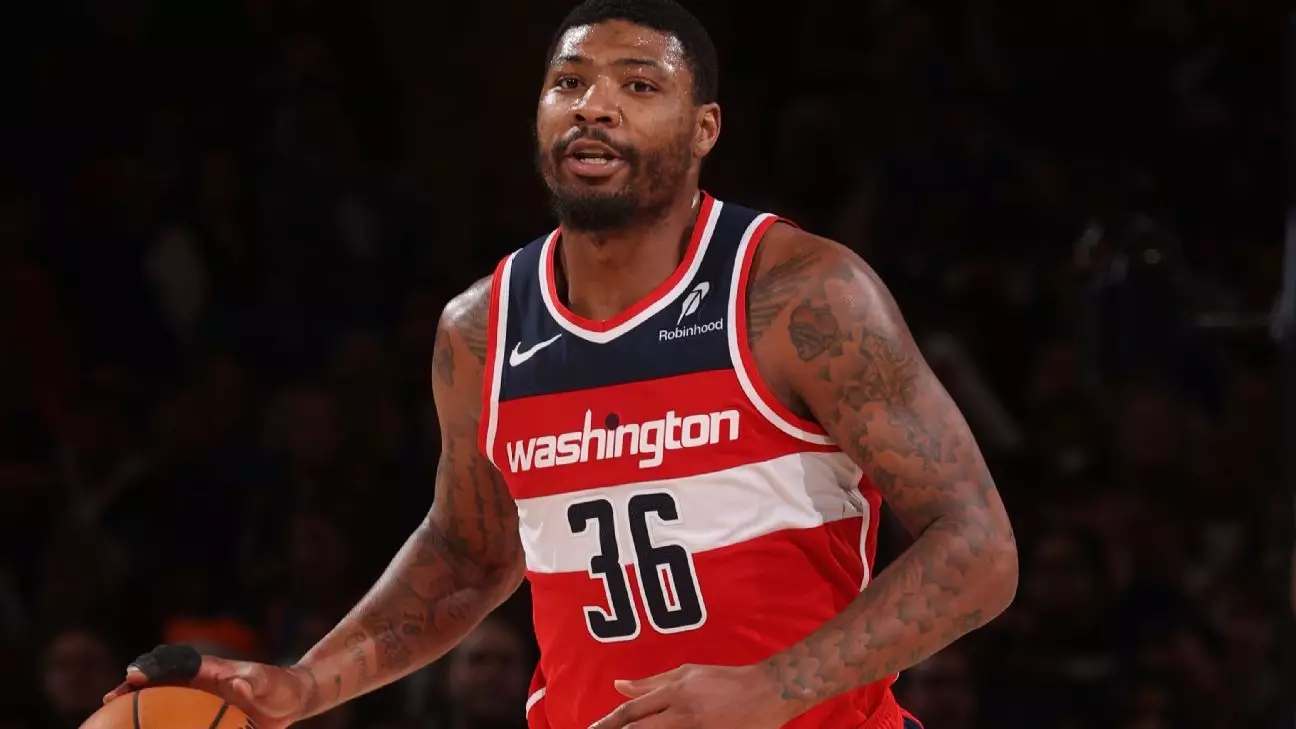In the world of professional sports, there exists an unspoken agreement between players, officials, and fans: the game should foster competition imbued with respect and sportsmanship. Yet, time and time again, we witness episodes where the line separating encouragement from hostility blurs dangerously. Marcus Smart’s recent encounter during the Boston Celtics versus Washington Wizards game starkly highlights this unsettling reality. When a fan crossed the line from spirited heckling to outright disrespect, it ignited a fiercer debate about the nature of acceptable behavior within the hallowed arenas of sports.
The incident itself is a microcosm of a larger issue. It begs the question: at what point does passion become a liability? Smart, who spent nearly a decade pouring his heart into the Celtics jersey, illustrated that just like on the court, there are rules off of it. He didn’t merely react impulsively; he recognized the potential for escalation and took the initiative to de-escalate the situation. His statement, “I don’t do line crossing,” reflects a conscientious player who understands the broader implications of fan behavior on player mental health and home-court atmosphere.
Fans: The Unchecked Element of Sports Culture
To dismiss the bad behavior of a few as an isolated instance would be naive. The reality is that many arenas around the league resonate with vitriol and ignorance, often fueled by alcohol and a misguided sense of entitlement. Sports, gloriously communal by nature, often lose their essence in these moments. An essence built on mutual respect fades into a cacophony of toxic taunts that reflect poorly not only on the athletes but also on the entire fanbase and the league itself.
Marcus Smart’s discomfort serves as a reminder that athletes are, beneath their towering performances, human beings. Predictably, when Smart returned to face his former team, the nostalgia of the fans turned emotional. Chants of “We want Marcus!” rang through the atmosphere, momentarily overshadowing the hostile energy from select individuals. It nudges us to reflect—a loving hometown bond should never devolve into a battleground for crass interactions.
The Consequences of Ignoring the Problem
Ignoring the toxicity of unchecked fans can lead to irreversible consequences. Athletes are more susceptible than we assume to the psychological impact of verbal onslaughts. A player’s spirit can be undeniably affected, not only during the game but long thereafter. In Smart’s case, while he has a robust support network forged over years with his teammates, the reality is alarming: far too many players are bereft of such camaraderie and end up navigating these hostile environments alone.
Furthermore, fans who exhibit such unruly behavior set a degraded precedent. Young fans witness these interactions, capturing every murky sentiment to model their experiences at live events. As culture is infamously conducive to replication, a few poorly chosen words can spiral, giving birth to generations of spectators who believe everything is permissible in the name of fandom.
A Call for Responsibility and Action
This approach must be challenged. The NBA and other leagues must take active measures to maintain the sanctity of their venues. Creating stricter guidelines for fan behavior, promoting a healthier culture in stadiums, and holding violators accountable are crucial steps to take. We must not simply be passive observers or indulge in knee-jerk reactions after explosive incidents; we must summon the courage to confront these issues at their roots.
Moreover, players must feel encouraged to voice concerns around the behavior they encounter without fear of ridicule. As smart as Smart may be, athletes shouldn’t have to be their own protectors against unruly patrons. A collective voice can resonate within locker rooms, in board meetings, and in the hearts of those that value the integrity of sportsmanship. This transformation will require a concerted effort from fans, players, team leadership, and sports organizations alike.
A culture of respect and dignity needs to prevail in our beloved athletic arenas. Fostering a welcoming environment for players while celebrating the spirit of competition could redeem the sanctity of the game we all cherish. We owe it to ourselves, and importantly, to the players who give us so much joy, to ensure the “line” isn’t just meant to be crossed but celebrated as a protective barrier for all involved.


Leave a Reply